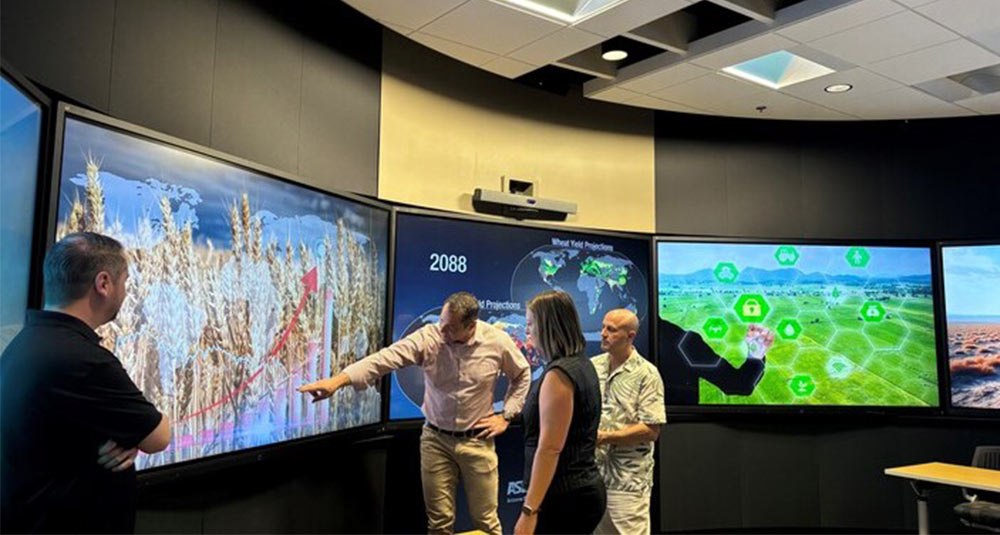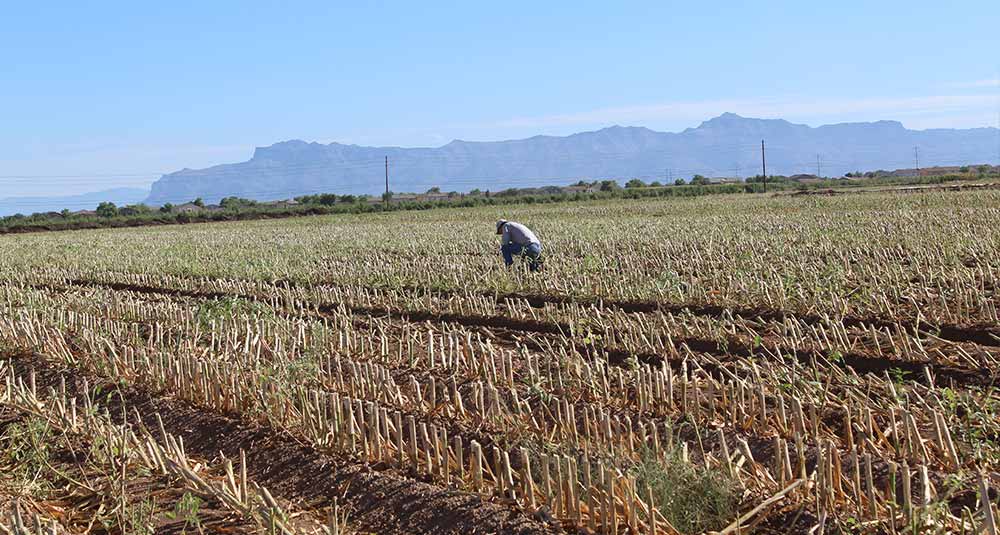The College of Liberal Arts and Sciences / School of Politics and Global Studies
Agriculture and Security
Agriculture and Security

Learn more about your impact
ASU’s Agriculture and National Security Project is redefining agriculture as strategic infrastructure — essential not only for food security, but for national defense, economic resilience and geopolitical stability. This first-of-its-kind initiative positions agriculture as a critical domain in 21st-century competition, protecting it from the ground up — from soil health to supply chain security — against cyberattacks, biothreats, climate shocks and foreign interference. Through applied research, on-farm innovation, cross-sector partnerships and national-level wargames, ASU is leading a bold, multi-year strategy to secure U.S. food systems from systemic threats. This work will culminate in the launch of the Center for Agriculture and National Security — a permanent hub that convenes researchers, policymakers, and private-sector leaders to drive research, shape national policy and lead coordinated defense of America’s agricultural base.Impact of donor support
Philanthropic investment will accelerate the growth and long-term success of the Agriculture and National Security Project, enabling ASU to:
- Institutionalize scenario-based wargaming, helping government, industry and academic leaders anticipate and respond to hybrid threats to the U.S. food system.
- Advance education and workforce development by launching new graduate-level courses, public-facing learning platforms and interdisciplinary training programs that prepare future leaders in security, agriculture and public policy.
- Develop and deploy dual-use technologies, including modular drones that provide both agricultural diagnostics (e.g. soil and crop monitoring) and humanitarian capabilities (e.g. landmine detection) to support post-conflict recovery in regions like Ukraine that are critical to global food systems.
- Scale climate-resilient farming solutions through applied research pilots focused on soil health, water efficiency and carbon sequestration in arid environments.
- Build national networks and policy capacity by convening cross-sector working groups, producing policy briefs and threat assessments, and hosting the annual Agriculture and National Security Conference to shape the future of food system defense.
